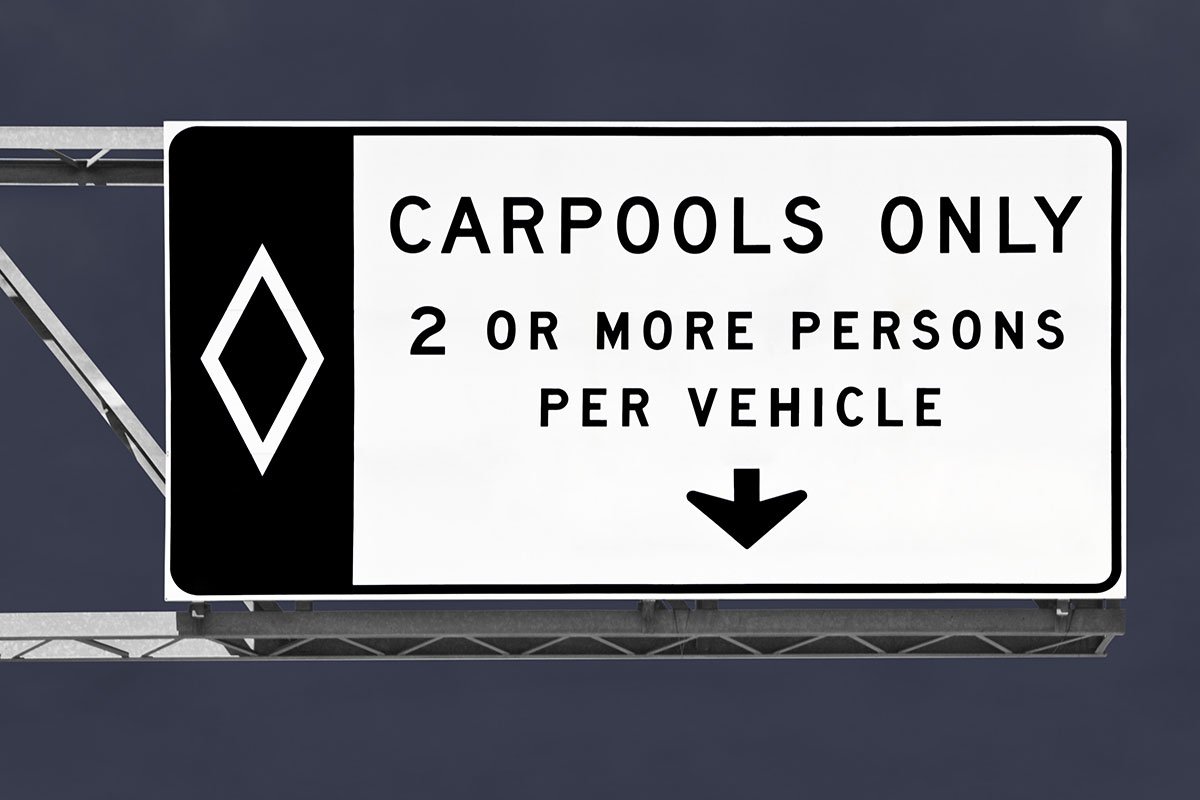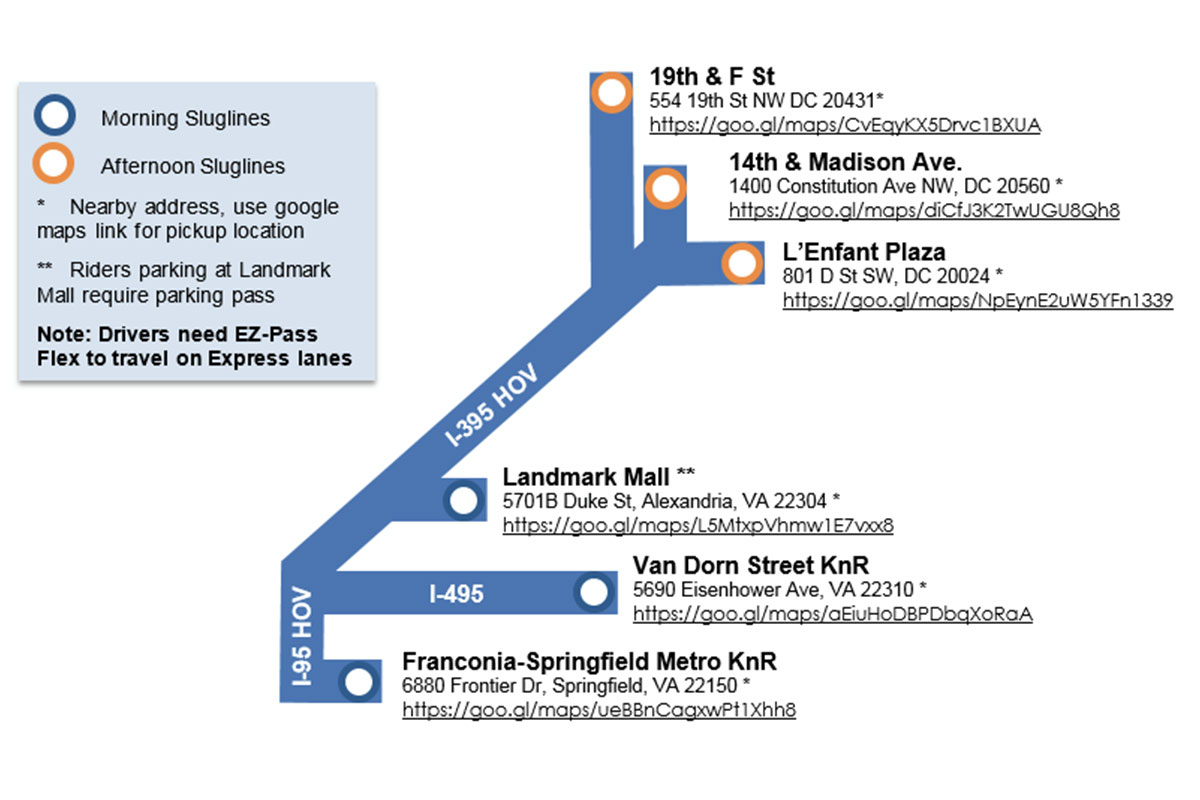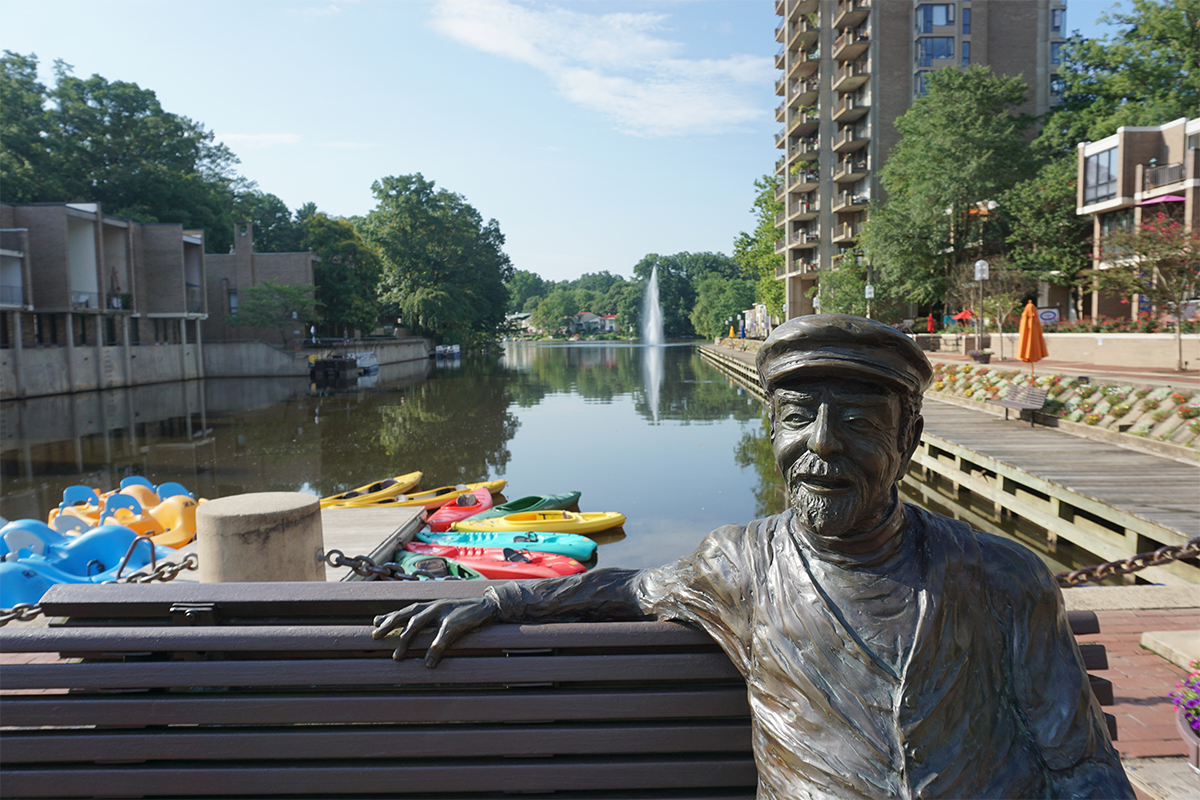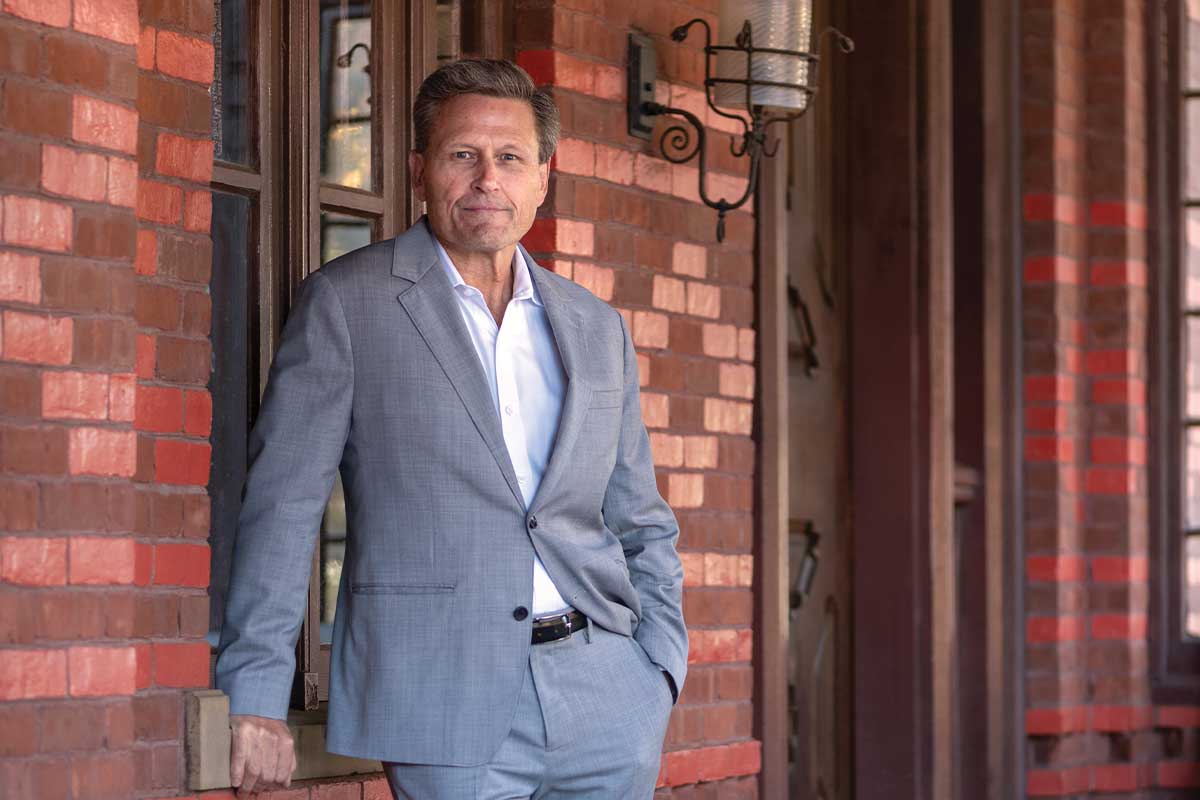
For the past six years, Jenny Smuland, a resident of Springfield, has been picking people up on her morning commute to Washington, DC on an “off-and-on basis,” as she describes it. Upon leaving her home, she travels 10 minutes out of her way to pick up other commuters, yet unlike drivers for ride-sharing companies like Uber or Lyft, there is no economic benefit.
Smuland is part of a unique group of individuals who participate in casual carpooling from Northern Virginia to the District, known as “slugging,” which has existed since the inception of High Occupancy Vehicle (HOV) lanes in 1971.
While the service has adapted as a result of technology’s growth, the general premise is this: drivers offer their vehicle, “sluggers” (riders) wait at one of the designated pick up locations along the I-95 and I-66 Corridors and then three or more commuters jump in and travel to a decided destination as a group.
And now with the Metro Summer Shutdown in full swing, the use of sluglines may seem like a more appealing option for the thousands of commuters who make their way into DC each day.

When the Reconstruction Project began, Kalai Kandasamy, one of the organizers and creators of the group’s app, decided to create three new routes for commuters. Now throughout the region, there are 50 pickup locations—40 in Northern Virginia, 10 in DC—where sluggers can meet and commute together.
“I am pretty pro-slugging, as my husband’s father was a slug driver back in the ’70s,” says Smuland. “It’s a really interesting thing where people actually come together to organize and rally, which people don’t usually do with strangers in DC.”
Smuland travels with the same two women every Monday and Tuesday, whom she has created relationships with through sluglines. While there are technically etiquette rules put in place, including minimal talking in the car and no profane music, over time individuals become comfortable with people who take similar routes each day, according to Smuland.
According to Kandasamy, there are about 5,000 commuters who go into DC, 3,500 who travel to the Pentagon and 1,500 who head to Rosslyn & Crystal City. Following the addition of the three sluglines this past May, Kandasamy has seen an increase of individuals coordinating via the Facebook group; however, finding drivers is challenging.
“We always have trouble finding drivers,” Kandasamy says. “There are many people who ask for rides but because it’s all volunteer, it is really hard to find people who want to drive. So, the only way we can meet up is through media, local radio waves and now the app or our social media platforms.”
According to Smuland, the shutdown has exhausted the system, in that people are confused about where to meet and how to navigate the traffic changes that come with it. Despite the confusion, she continues to slug and now drives to the Van Dorn Street station, one of the closed platforms, to pick up her usual slugging partners.
“I started about a year ago, and at first I was a little scared because I am a female and I didn’t know who was in the car,” says NoVA resident Claudia Davis. “After time, you start to know people. You go to the same spot at the same time and see familiar faces every day.”
Prior to joining sluglines, Davis was spending about $200 a week on tolls, gas and car maintenance. Now, she and her husband regularly drive or slug as a pair but as the shutdown continues, she finds the traffic to be much worse.
“The roads are crazy,” Davis says. “The busses are very rude and tend to cut people off in the lanes. But I have noticed more people slugging because of the shutdown, too.”
Recently, Kandasamy has worked with GPS navigation software company Waze to create an Alexandria Platform Reconstruction Carpool group. Those who are commuting to or from Alexandria can pay a flat rate of $2 to use the Waze carpool program until the shutdown ends on Sept. 8.
“The carpool group is pretty new because we were doing promotion in DC from April to the end of June, so we just added the Alexandria promotion for residents a couple of weeks ago,” says Head of Public Sector Partnerships Dani Simons. “Since April, we’ve seen a 35% month-over-month growth in completed carpools in the area.”
In the past few years, Kandasamy has been pushing for infrastructure from government in the form of curb space and signage, similar to what ride-sharing companies receive, because he wants the tradition to continue and grow. According to Kandasamy, WMATA has not promoted slugging throughout the shutdown.
“We’ve been around for 40 years and thousands of people use us,” Kandasamy explains. “But it is really hard for us to be considered a mode of transportation.”
This article is a part of our ongoing coverage of the Summer Platform Improvement Project. We will continue to update and inform the community about the project through September. See all of our coverage here.




